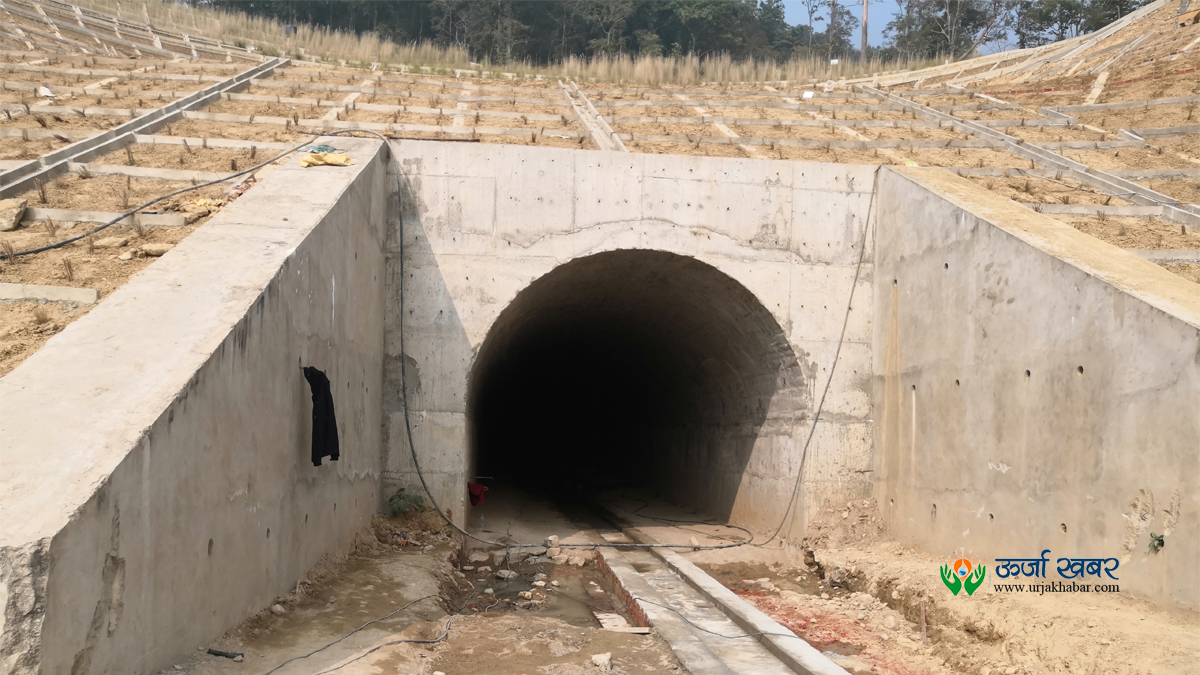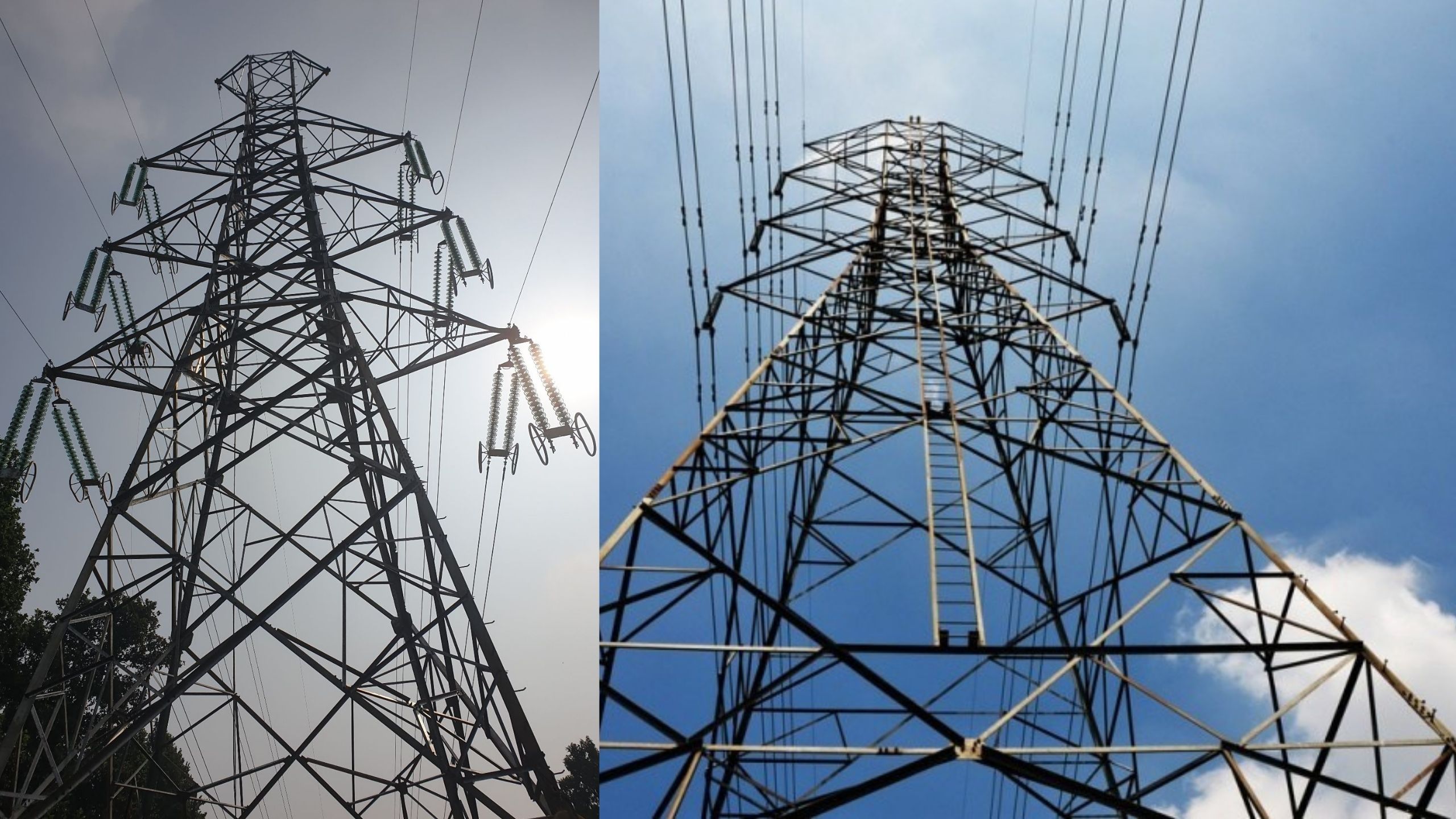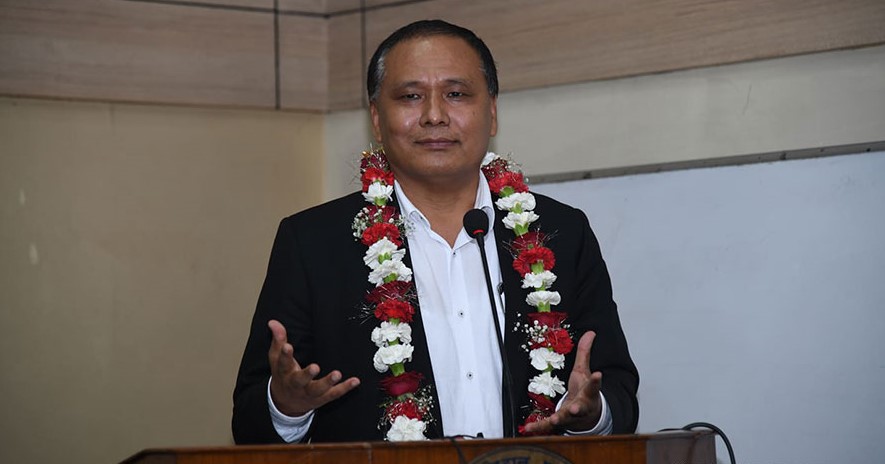Energy Update
Bheri Babai project delayed due to damage

The completion date of the Bheri Babai Diversion Multipurpose Project has been pushed back by three years after a flood swept away a newly built dam at Chiple on the Bheri River, officials said.
The multi-basin irrigation-cum-hydropower project located in Surkhet in mid-western Nepal is slated to be ready only in 2024. The plan calls for diverting the water of the Bheri River to the Babai River through a tunnel to irrigate farmlands and generate electricity.

The national pride project has run into a series of setbacks. The Covid-19 pandemic last year caused it to suffer a shortage of construction materials.
"Disputes with project-affected locals over compensation also delayed work," said Samit Das, chief engineer of the project. "Work stopped for days after locals demanded jobs at the construction site," he said.

Currently, 90 workers are engaged at the project site. According to Das, the flood damaged dam at Chiple is being repaired.
“The project has also set up camps for workers, crusher plants to produce aggregate and other temporary structures,” said Das. "The construction of the Chiple-Kholsi diversion tunnel has also been expedited."
The project will have a 15-metre-high dam to divert 40 cubic metres of water per second from the Bheri River to the Babai River. During the dry season, the water flow in the Bheri River is 80 cubic metres per second, according to the project.
A 4.2-metre-wide and 12.2 kilometre-long tunnel will carry the water which will be used to irrigate 51,000 hectares of land round the year in Banke and Bardia districts. The project will also generate 46.8 megawatts of electricity.
The irrigation-cum-hydroelectric project is one of the strategic projects of the country, as it is expected to ease the food crisis in the mid-western region by increasing agricultural yield. Das said a bridge would also be built over the Bheri River.
The second phase of the project has been awarded to Raman Guangdong JV for the construction of the dam by August 14, 2023. The Rs6.16 billion contract was signed on July 30, 2020.
The government had invited bids for the construction of the project in July 2012, but lack of resources and delays in the appointment of a contractor prevented the four-year project from getting off the ground.
The construction of the project was finally inaugurated in April 2015 by the then prime minister, the late Sushil Koirala.
Officially launched in June 2015, the diversion tunnel was completed on April 16, 2019, six months ahead of schedule.
The project was undertaken by China Overseas Engineering Group and China Railway No 2 Engineering Group, both under the China Railway Group.
The annual report of the Office of the Auditor General said that the construction company handed over the tunnel to the project without conducting tests and sending water through the tunnel.
The Chinese contractor handed over the tunnel to the project on September 2, 2020. The tunnel was dug through the hills using a tunnel boring machine (TBM), a first in Nepal.
According to the Department of Irrigation, Rs9.88 billion has been paid to the Chinese company for the construction of the tunnel although the agreement was for Rs10.57 billion.
The project did not check the grouting done inside the tunnel, or make a proper geographical assessment of the tunnel which lies under the Chure and Mahabharat ranges, according to the government’s audit report.
“The project also did not test the tunnel by filling it with water. The project did not make the contractor liable for any damage and risk after the tunnel is filled with water,” the report said.
The report has pointed out that the quality of the construction work should be ensured.
The Bheri Babai project has included the area irrigated by the Babai Irrigation Project in its scope of work, according to the report.
The project has stated that 51,000 hectares of farmland in Banke and Bardia will be irrigated round-the-year by diverting water from Bheri River to the Babai River.
"The Bheri Babai diversion project is aimed at diverting 40 cusecs of Bheri River water to the Babai River through a tunnel to irrigate 36,000 hectares of the project's command area, and an additional 15,000 hectares not covered by the project," the report said.
In the detailed project report, the source of the Babai Irrigation Project and the irrigated area have been counted in the scope of work of the project.
Last year, representatives of the parliamentary Natural Resource and Monitoring Committee conducted an inspection of the scheme.
Committee member Raj Bahadur Budha said the progress of the project was satisfactory as compared to other national pride projects, but some errors needed to be rectified. He said that a report would be prepared soon.
According to the project office, the Bheri Babai project has made 52.12 percent physical progress and 44.77 percent financial progress so far.
The project has completed the construction of about 14 km of the main canal and 121 km of the branch canal, said Das. The service road has been extended to 110 km, and 18 km of the canal is left to be paved, he said.
Conversation
- Info. Dept. Reg. No. : 254/073/74
- Telephone : +977-1-5321303
- Email : [email protected]













